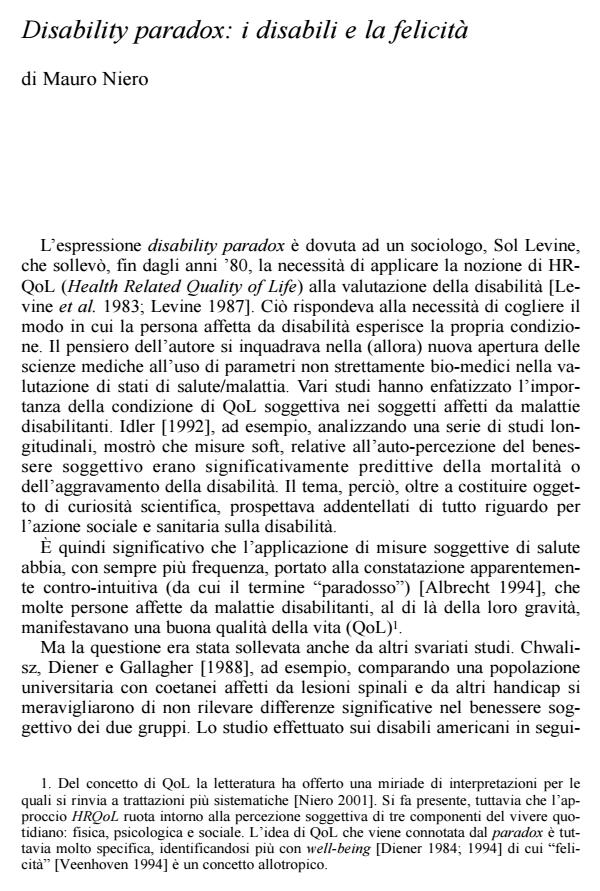Disability paradox: i disabili e la felicità
Journal title SALUTE E SOCIETÀ
Author/s Mauro Niero
Publishing Year 2005 Issue 2005/1
Language Italian Pages 15 P. File size 47 KB
DOI
DOI is like a bar code for intellectual property: to have more infomation
click here
Below, you can see the article first page
If you want to buy this article in PDF format, you can do it, following the instructions to buy download credits

FrancoAngeli is member of Publishers International Linking Association, Inc (PILA), a not-for-profit association which run the CrossRef service enabling links to and from online scholarly content.
The disability paradox means that people that should be sick feel good. Often people with disabilities are very satisfatied with their lifes and consider their own conditions as fairly good, coerently Quality of Life indexes results in high rates. After an analysis of the main approches on the topic (equilibrium model; expectations- gap model; coping model; illness behavior model), Niero suggests, quoting classical scholars (Levine, Mechanic ecc.), that, in many cases, disability is considered as a part of the identity of a person that can be a fruitful one. To put it with Stephen Hawking words: [thanks to my wife, children, and collagues] disability has never been a serious handicap. Now I am very happy. Niero suggests that probably the paradox is not a real paradox.
Mauro Niero, Disability paradox: i disabili e la felicità in "SALUTE E SOCIETÀ" 1/2005, pp , DOI: